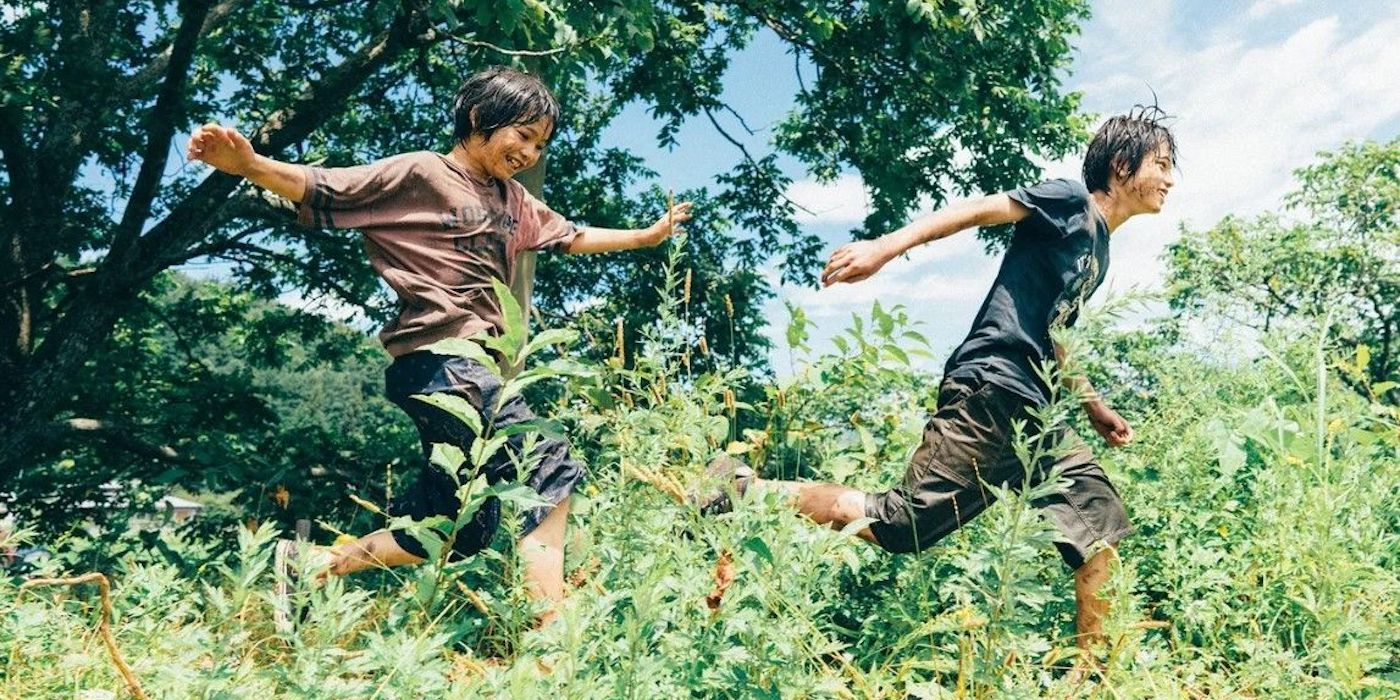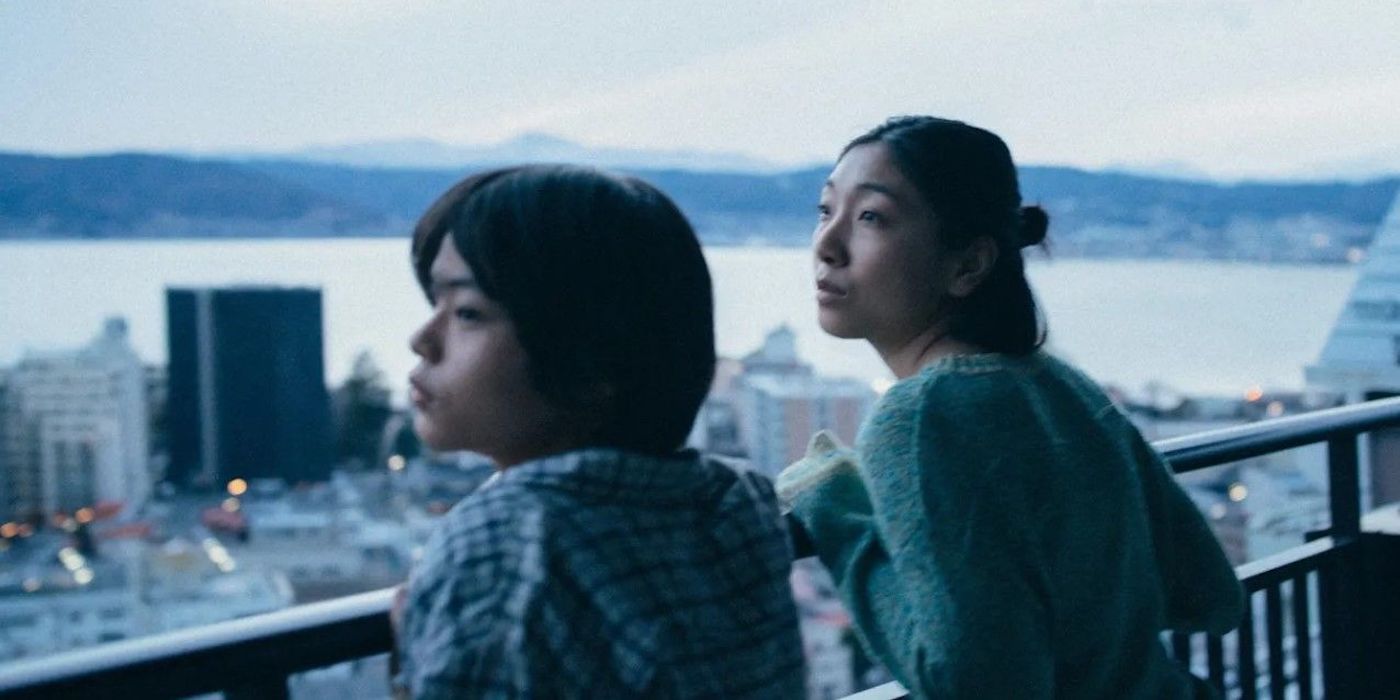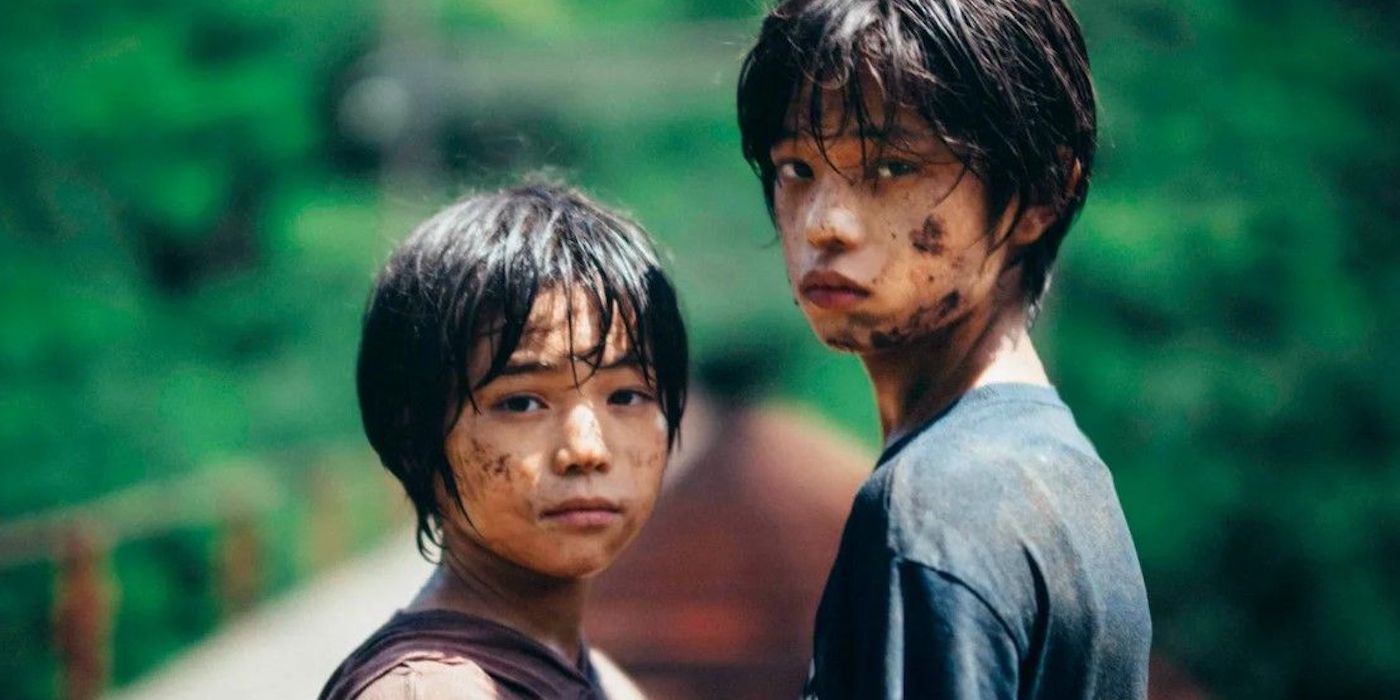Hirokazu Kore-eda returned to the Cannes Film Festival to debut his ninth feature film, marking his seventh entry at the popular international event and his first in which he does not pen the script for a feature since his debut. In his first Japanese language film since Shoplifters, the director collaborates with the renowned Japanese TV writer, Yuji Sakamoto. Monster reveals a story about adolescence, lies & deceit, and the consequences thereof from a humane perspective, slowly revealing intricate details of life’s biggest complications through three vantage points. The film demands a great deal of patience from you, but the payoff and the events leading up to it are well-earned emotional depositions.
The story follows a young boy Minato (Soya Kurokawa) as the challenges he faces at school begin to result in his strange behavior. His concerned mother, Saori (Sakura Andō) believes his actions stem from something that is more than meets the eye, and she frequently charges into his school to demand answers. Simultaneously, Minato’s classmate Eri (Hinata Hiiragi) and homeroom teacher Hori (Eita Nagayama) both seem to know another side to the story. As their three vantage points slowly unfold, so do the lies and consequences, which unveil buried truths that have troubled all the characters.
A richly divine story about childhood, secrets, the human need to fit in, and the outcomes thereof, Monster is a tender exposition of bullying, deceit, and self-honesty. These themes often begin to overpower one another, especially with the frequent shift to other story perspectives, but they offer an exceptional display about the intricacies of life, especially as one gets older. Yuji Sakamoto’s script examines what it means to see oneself as a “monster” with delicacy and a keen respect for complicated emotions we may experience in youth. Through the central character Minato, Sakamoto focuses on childlike experiences and emotions and how those impact communication with adults.
Under these profound storylines is a story that often pulls in themes related to mental health and child abuse. They often come at moments in which the script is already so heavily focused on other elements, that it may hit audiences like whiplash. Perhaps that is the intent of director Kore-eda, as he gracefully weaves in and out of the characters' perspectives through fade-aways or even sudden disruptions. It often abruptly changes the mood, but so can the emotions of a child, which is why it works exceptionally well here, driving home the point with a subtle yet tender approach. That, paired with the sensational scenery and visuals, thanks to his partnership with cinematographer Ryuto Kondo, makes the experience rich with curiosity and emotion.
Luckily, Kore-eda never directly lets us in on where he’ll conclude his film until the last 20 minutes or so. At times, it becomes a detriment to our enjoyment as some of the dialogue feels endless and requires heaps of patience to understand a possible explanation. However, the uncertainty also enables us to be immersed in the story without needing to put everything together immediately. Despite the vagueness and amalgamation of themes that center this feature, it is best to practice patience with this film. Because by the end, it oozes those familiar human elements that Kore-eda so richly and skillfully masters in his body of work.
A wonderful exploration of complex life experiences through the eyes of three different characters, Monster is considerate in how it tackles a range of themes related to bullying, child abuse, and lies. The exceptional camera work by Kore-eda and tender script from Yuji Sakamoto is a near-perfect pairing. Together, this dynamic duo created a great film that enabled the cast to put every ounce of emotion into their performances. Thanks to all these foundations, and with the film up for Palme d’Or in this year’s competition, this is a film to certainly add to one’s watch list.
Monster premiered at the 2023 Cannes Film Festival on May 17. The film is 125 minutes long and will premiere in Japan on June 2.



